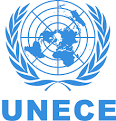Circular economy transformation is a new area of cooperation between the United Nations Economic Commission for Europe (UNECE) and the Government of Tajikistan. Under the overarching leadership of the Ministry of Economic Development and Trade, UNECE together with the UN Tajikistan, and in partnership with national stakeholders, will tailor solutions to make the manufacturing lifecycle of clothes and footwear circular.
In Tajikistan, the garment and footwear sector is vital for the country’s economic development. In 2021, the Tajik textile industry employed 50% (or 9,000 workers) of the total people working in the light industry, 28.9% of people in the garment industry (or 5,200 workers), and 4.4% of individuals in the leather and footwear industry. Tajikistan produces cotton, which could be an important comparative advantage in strengthening the national garment and footwear sector. In 2021, the country exported cotton worth 202.6 million USD (9.4% of total exports), while its garment exports amounted to 18.3 million USD.
However, the continuation of a business-as-usual approach in the sector in Tajikistan and in Central Asia more broadly could lead to irreversible environmental damage and reduce socio-economic growth prospects. The region has already witnessed one of the worst ecological disasters with the near disappearance of the Aral Sea, where cotton farmers used to draw excess water from its main sources, the Amu Darya and Syr Darya rivers. Worldwide, the garment and footwear sector creates around 90 million tonnes of waste. Further, 87% of textiles are discarded or burned each year, costing 100 billion USD. A total of 98 million tonnes of non-renewable resources are used per year - including oil to produce synthetic fibres, fertilisers to grow cotton, and chemicals to produce, dye, and finish fibres and textiles.
Adopting circular economy approaches can help address these risks and steer the sector onto a more sustainable path. A circular economy is a system in which economic activity is decoupled from the consumption of finite resources. UNECE works to accelerate this circular transition in its programme countries, creating economic benefits like cost savings, new business opportunities, more jobs, and to reduce environmental impact.
However, many countries, particularly emerging economies, cannot fully realize these gains due to capacity limitations. Since the circular economy requires a cross-cutting approach and interconnectivity in a national economy, it is necessary to clearly identify the priority sectors in which circularity can be mainstreamed. Within the UNECE region, the garment and footwear sector, especially in Central Asia, holds particular potential for this shift.
CONTINUE READING ON unece.org



